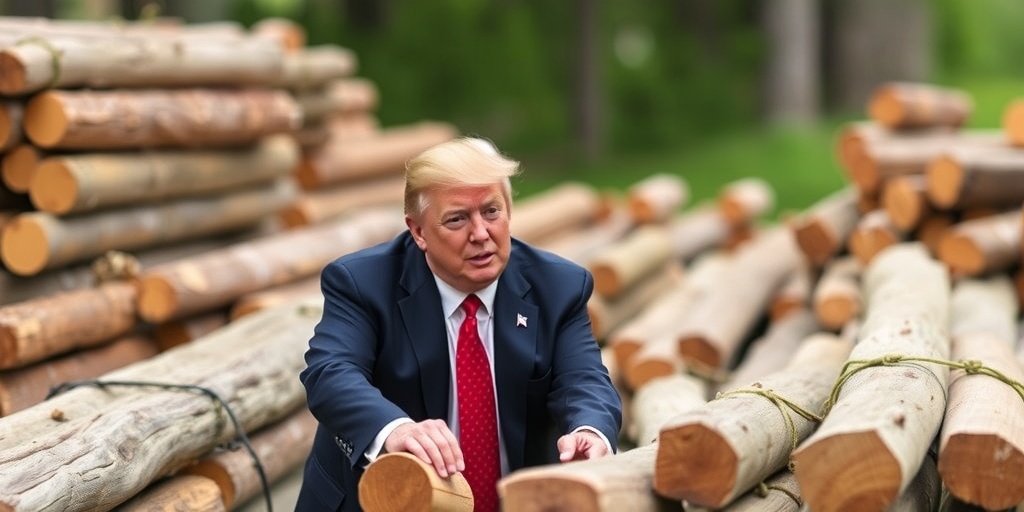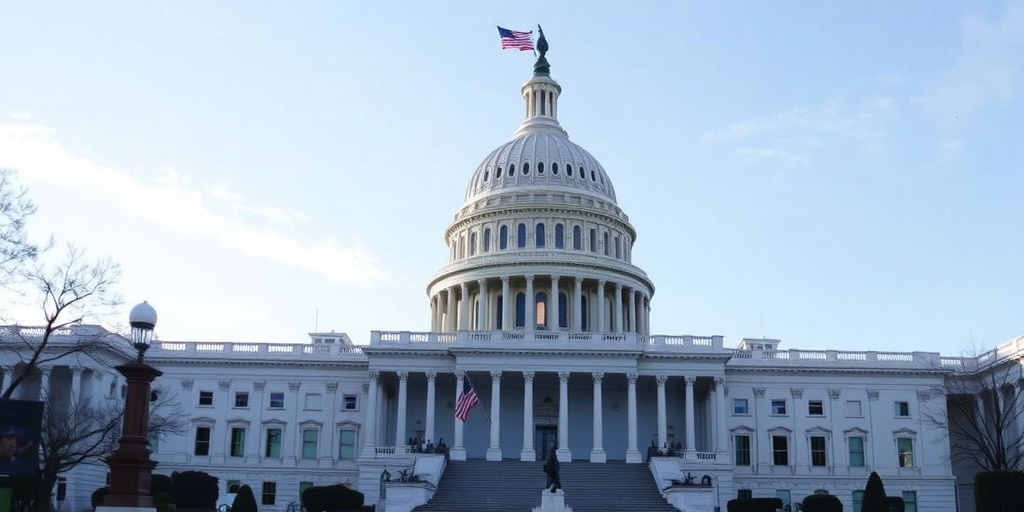Now Reading: Trump Engages Canada in New Lumber Trade Dispute
-
01
Trump Engages Canada in New Lumber Trade Dispute
Trump Engages Canada in New Lumber Trade Dispute

Title: Trump Launches Lumber Investigation Amid Trade Tensions with Canada
In a significant move that may exacerbate tensions between the United States and Canada, President Donald Trump announced on Saturday the initiation of an investigation into whether imports of lumber from Canada pose a threat to America’s national security. This decision comes as part of a broader strategy to rethink and potentially reshape trade relations between the two countries, particularly concerning the lumber industry.
The president’s directive to the Commerce Secretary, Howard Lutnick, requests that a thorough inquiry be conducted to assess the implications of lumber imports on national security. The findings of this investigation could open the door for President Trump to impose tariffs on Canadian lumber imports, a step that would likely provoke a strong reaction from Canada, the primary source of wood supplies for the U.S. market.
A White House official has indicated that the duration of the inquiry remains uncertain, leaving the future of U.S.-Canada lumber trade in a state of suspense. Along with the memorandum that initiated this investigation, another document was released, which aims to augment the amount of lumber available for sale in the U.S. annually. This strategy seeks to bolster supply and mitigate any potential increases in timber prices.
Trade relations between the U.S. and Canada have long been fraught with disputes, especially concerning the lumber sector. Canadians have expressed outrage over Trump’s earlier comments and proposed tariffs on all imports from Canada, urging citizens to consider boycotting American products in response. Mexicans are also facing similar tariff threats, with the Trump administration claiming that these measures are necessary due to Canada and Mexico’s inability to effectively address illegal drug trafficking and immigration into the United States.
In the wake of these escalating tensions, many Canadians have pushed back against Trump’s assertions that their country is a significant source of fentanyl, which has been a major public health concern in the U.S. The rhetoric surrounding drug trafficking has further complicated the trade discourse, as Canadians argue against the president’s claims without substantial backing.
Historically, the U.S. and Canada have frequently clashed over lumber tariffs and trade practices. The two nations have imposed tariffs on each other’s lumber products and have engaged in lengthy disputes within frameworks such as the North American Free Trade Agreement (NAFTA) and the World Trade Organization (WTO). In 2021, Canada exported approximately $28 billion worth of lumber to the U.S., accounting for nearly half of all lumber imports into the country. China, Brazil, and Mexico followed as additional sources, but they are significantly behind Canada in terms of total import volume.
The United States itself is not merely a consumer of Canadian lumber; it also exported nearly $10 billion in lumber to Canada in the same year, alongside $6.5 billion worth of lumber shipped to Mexico. The interdependence between these nations’ lumber industries illustrates the complexity of the situation, which could be subject to severe disruption if tariffs are enacted.
Peter Navarro, a senior advisor on trade and manufacturing, has been vocal about the perceived negative impact of foreign lumber on American industry. He described the current timber and lumber policies as “disastrous,” asserting that they inflate construction and housing costs in America. Navarro emphasizes that the government’s action is aimed at rectifying trade deficits driven by what he called "dumping" practices by countries like Canada and Brazil.
While the planned tariffs could raise domestic lumber prices and affect various industries, particularly construction, the ongoing investigation will also assess derivative lumber products, such as those used in kitchen cabinets. However, this move has raised questions concerning the validity of citing national security as a justification for regulating lumber imports. Critics point out that unlike materials such as steel and aluminum, which have direct military applications, the connection between lumber and national security appears more tenuous.
In response to inquiries regarding the national security argument, a White House official noted that lumber is a significant element utilized by the military, adding a layer to the complexity of the discussion. As this investigation unfolds, it remains to be seen how its outcomes will influence U.S.-Canada relations and impact the construction industry and broader economy.
The future of international trade in lumber will hinge on the results of this inquiry and the resultant decisions made by the Trump administration. In an environment already charged with trade-related animosities, the stakes are high for both American lumber producers and Canadian exporters, making this situation one to watch closely in the coming weeks.
Stay Informed With the Latest & Most Important News
Previous Post
Next Post
-
 01New technology breakthrough has everyone talking right now
01New technology breakthrough has everyone talking right now -
 02Unbelievable life hack everyone needs to try today
02Unbelievable life hack everyone needs to try today -
 03Fascinating discovery found buried deep beneath the ocean
03Fascinating discovery found buried deep beneath the ocean -
 04Man invents genius device that solves everyday problems
04Man invents genius device that solves everyday problems -
 05Shocking discovery that changes what we know forever
05Shocking discovery that changes what we know forever -
 06Internet goes wild over celebrity’s unexpected fashion choice
06Internet goes wild over celebrity’s unexpected fashion choice -
 07Rare animal sighting stuns scientists and wildlife lovers
07Rare animal sighting stuns scientists and wildlife lovers





















